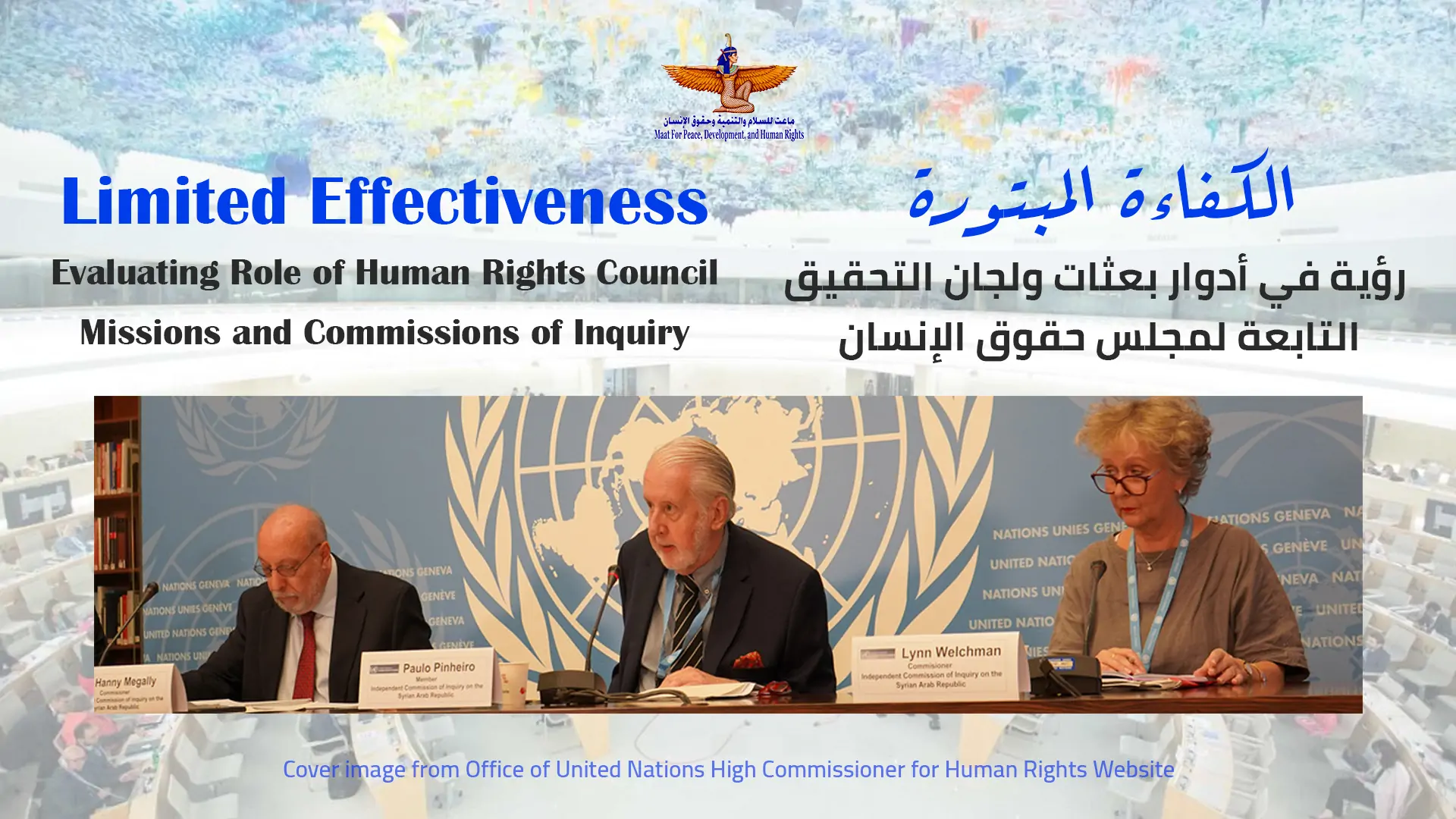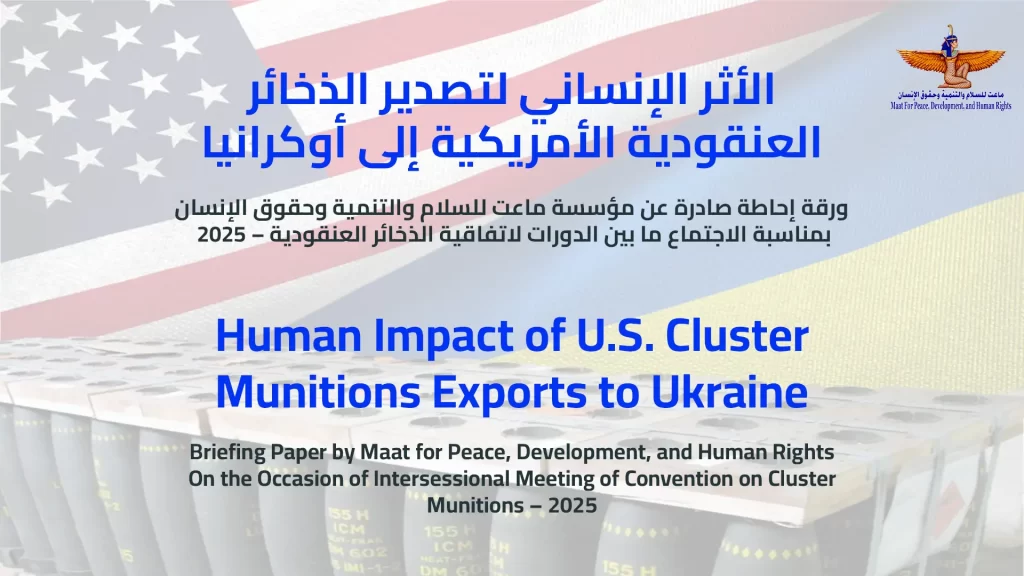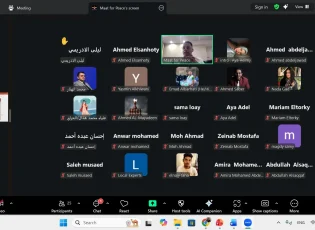Independent international investigation missions and commissions are an important tool for documenting practices and gross violations of human rights in countries experiencing armed conflict, whether international or non-international. These investigative missions and committees aim to form a clear understanding of the human rights situation by interviewing witnesses, victims' families, and those targeted by arbitrary practices. The Human Rights Council's authorization decisions for these missions and committees urge the concerned states to fully cooperate, allowing them unrestricted access to the country and the ability to collect the necessary information to fulfill their mandate effectively. Since its establishment in 2006, the United Nations Human Rights Council has created 40 bodies to investigate alleged violations of international humanitarian law and human rights law, whether long-term or resulting from sudden events. These include missions and investigative committees in countries such as Sudan, Ethiopia, Belarus, Lebanon, Ukraine, Côte d'Ivoire, Libya, the occupied Palestinian territories, Syria, North Korea, Sri Lanka, the Central African Republic, and Nicaragua. The purpose is to collect evidence, document human rights violations, create a historical record, raise awareness, promote accountability, and make recommendations for corrective actions based on their findings. Despite the important roles assigned to these commissions of inquiry and fact-finding missions, their effectiveness in implementing their tasks has been questioned, particularly in cases where they face significant obstacles in reaching the areas in question due to governments' refusal to grant them access or cooperate with their work. This limits the ability of these international investigative bodies to conduct field visits, use observational research, and collect direct evidence, as seen in the difficulties faced in Syria, Iran, and the occupied Palestinian territories. These committees also encounter a range of operational, logistical, and security challenges while carrying out their work.[1] Despite the important roles assigned to the commissions of inquiry and fact-finding missions of the Human Rights Council, the effectiveness of these committees and missions in implementing these roles and tasks remained in doubt, especially in cases where these committees and missions faced major obstacles in reaching the areas in question as a result of refusal to Governments allow them access to their territories or cooperate with them in carrying out their missions, which limits the ability of international investigative bodies to conduct field visits or use observational research to collect direct evidence and other techniques on which these missions mainly rely in carrying out their work, as is the case in difficulties. What these missions faced in reaching the relevant areas in Syria, Iran and the occupied Palestinian territories. These committees also face a wide range of challenges while carrying out their work, including operational challenges, logistical challenges, and other security challenges.
This Study examines the effectiveness of the Human Rights Council's investigative committees and missions in achieving their established goals, particularly in cases where they face challenges related to the inability to access the areas of concern and the lack of cooperation from the governments involved. The Study seeks to answer the following main research question: How Effective Are Investigative Committees and Missions of Human Rights Council? This Study provides an overview of all the investigation committees currently carrying out their tasks, and it dedicates a section to focus specifically on six investigation committees that faced various obstacles during their work, including three missions and investigation committees that were represented on the agenda of the 56th session of the Human Rights Council, which took place from June 18 to July 12, 2024. This Study also does not cover fact-finding missions conducted by Human Rights Council special procedures (such as special rapporteurs and independent experts) - nor does it cover Expert Mechanism to Advance Racial Justice and Equality in the Context of Law Enforcement Context due to its thematic nature, as this Study focuses on relevant missions and commissions of inquiry.

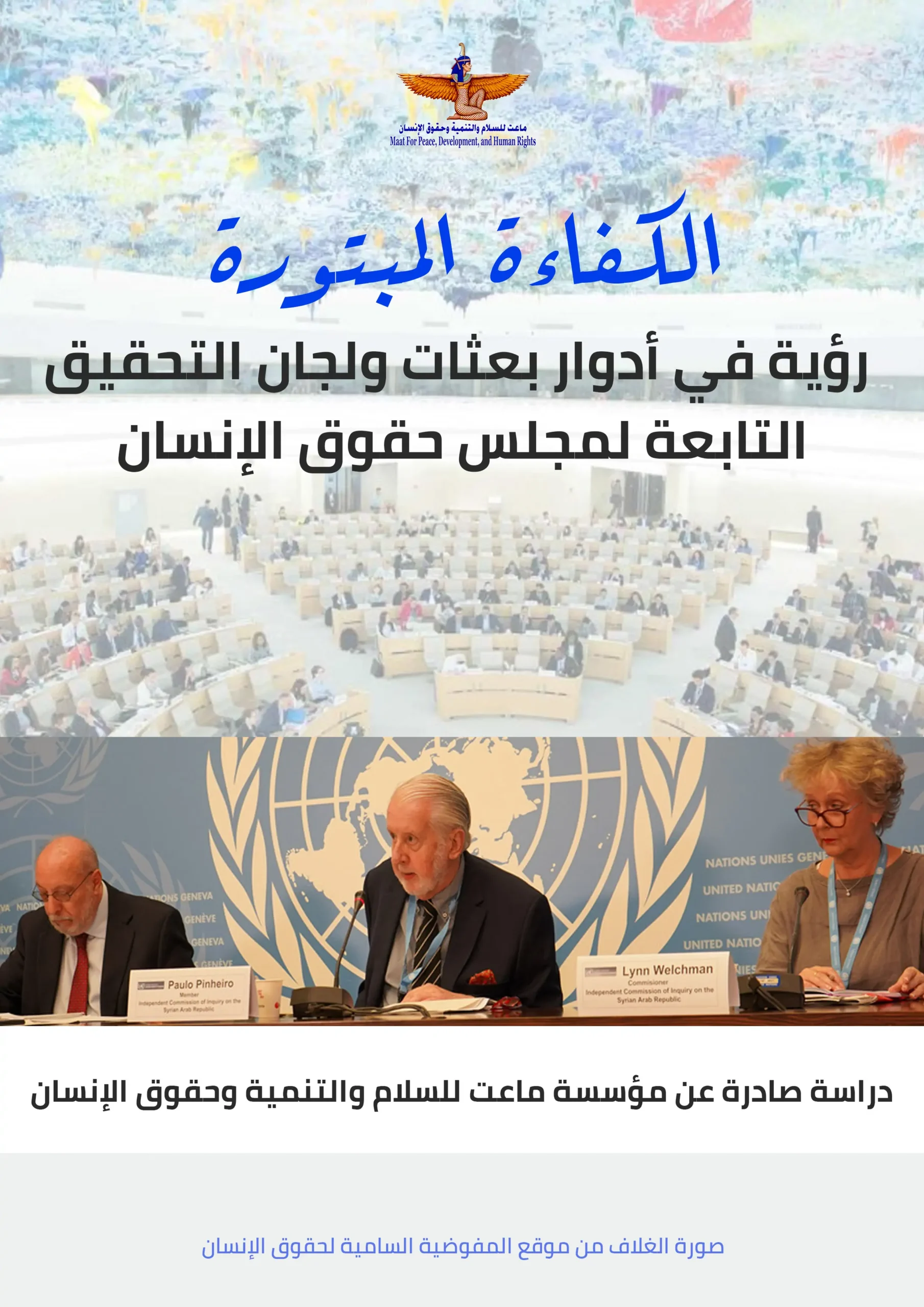 |
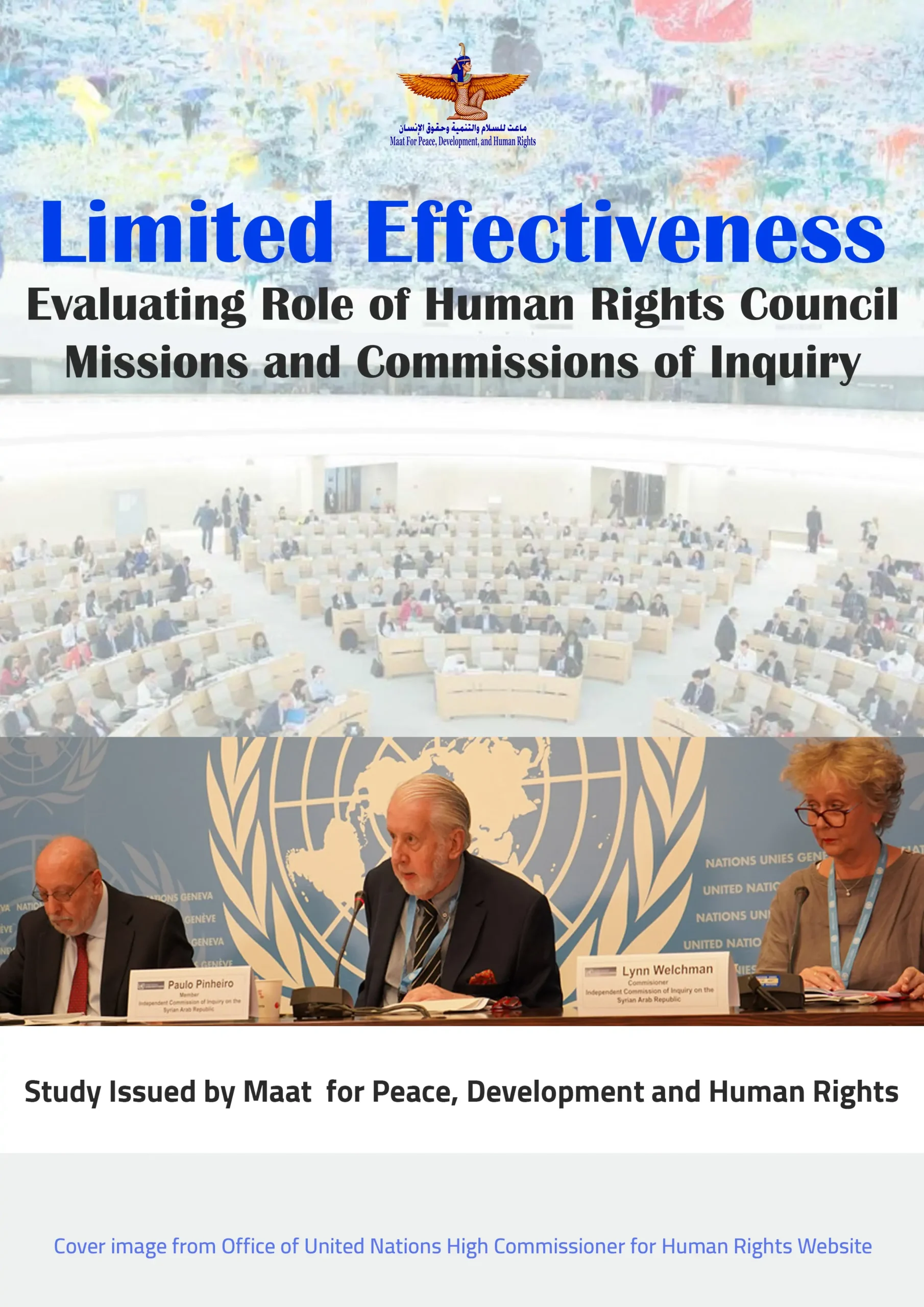 |
shortlink: https://maatpeace.org/en/?p=42836


